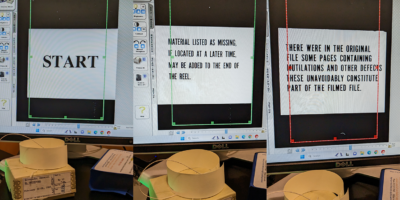By Leah Anderst
For the first time this semester, I’ve added a sexual harassment statement to my course syllabi. For better or for worse, I’ve lengthened that already over-long document that more and more functions as a contract spelling out the rights and obligations of those of us, professors and students, who occupy a college classroom together.
Here is the statement in my syllabi, modified from CUNY’s own sexual harassment policy: “Sexual harassment is prohibited: Every member of the CUNY community, including students, employees and visitors, deserves the opportunity to live, learn and work free from sexual misconduct, including sexual harassment, gender-based harassment and sexual violence, such as sexual assault, stalking or dating violence. CUNY Policy prohibits sexual misconduct, and it prohibits romantic relations between professors and their students. Please remember that sexual harassment includes undue and unwanted attention, such as repeated inappropriate flirting, staring or making sexually suggestive comments. Sexual harassment has no place in our classroom or on our campus.”
Reading and writing this over again here, I bristle. This statement increases the amount of legalistic language within a document that represents my course. And whatever the course I may be teaching, whether developmental writing, composition one or two, or literature or film electives, one of my principle aims as an instructor is to foster openness with and among my students. An openness that feels hampered by the inclusion of a sexual harassment statement.
But here’s why I did it.
During the last few semesters, students (both men and women) have tested the boundaries of our relationship in ways that are sometimes simply annoying and other times deeply unsettling. Students have commented on my clothes, my shoes, my hair, my body. Students have inquired about my love life and relationship status and have voiced their judgments about my responses. Students have purchased expensive and intimate gifts for me at the end of the semester. Students have mistaken my friendliness for flirtatiousness and pursued romantic relationships with me. All of this may seem like humblebragging, but there’s little that’s fun or cute about navigating difficult emotional conversations with students. (I’d prefer to reserve that kind of awkwardness for my family and my actual love life.) More seriously, there’s nothing funny about the persistent worry I felt one recent semester when a former student whose romantic overtures I’d rejected kept showing up in the school stairwell and parking lot just when I’d be there.
Perhaps more concerning, however, is how casually some colleagues and university administrators seem to treat such episodes. A department chair at a college where I briefly taught part-time some years ago suggested I date the student who, mid-semester, started sharing his love poems with me via email. I had contacted the chair because I was at a loss. I was new to teaching and felt powerless in the face of this student who was older than me and whose actions had altered the tenor of discussion in the classroom. My discomfort for that chair was a joke, a funny problem for which he offered no useful advice. The email I eventually sent the student (after some days of agonizing over it) likely struck the wrong tone: without explanation, the student stopped attending and didn’t reply to subsequent emails.
A recent column by Rob Jenkins in the Chronicle gets at some of the murkiness that can surface in professor-student relationships and lead to students’ misconceptions. This piece acknowledges well the ways that students may conceive of our relationships with them through a variety of lenses: authority, work, family, or friendship. While for Jenkins and for many others those lenses often distort, for some instructors, they do not. Maria Poggi Johnson, for instance, describes the highly intimate friendships she and her husband enjoy with students on their campus in another Chronicle piece. And William Deresiewicz discusses the inevitability and, in his mind, the importance of intimacy between professors and their students in The American Scholar as well as in his book Excellent Sheep.
Like Johnson and Deresiewicz, my preference has been to foster close ties with my students, and my teaching style tends to communicate my conception of students as equal contributors within our classroom and as people with rich, interesting lives outside of it. And in some cases, yes, I feel a strong pull to become friends with my students. But like Jenkins, and in ways that he does not acknowledge, I get frustrated when students misperceive my behavior toward them. I get angry when their boundary-testing veers into harassment.
As I’ve begun sharing these experiences with women colleagues in particular, it’s clear that some form of student boundary testing happens to a good many of us. Are all these instances sexual? They certainly aren’t. But as they have accumulated, I feel more and more a responsibility to do something, for both me and for my students. What the sexual harassment statement allowed me to do this semester was have a conversation with my students on day one, a conversation about the kind of environment we create together in the classroom. Even for the many who just sat silently as a few of us talked about it together, the statement provides us with language to talk about what may be happening between students or between students and professors. Will it eliminate the comments, the overtures, the testing entirely? I doubt it. There’s rarely a single solution to the problems we face when confronted with other human beings. And many of my students are young; they’re still learning to navigate tricky human interactions. Mistakes are inevitable. Still, if the statement prevents some of those mistakes, some of those misperceptions from drifting into a truly inappropriate zone, I’ll consider it successful.
Leah Anderst is an Assistant Professor of English at Queensborough Community College.









Leave a Reply